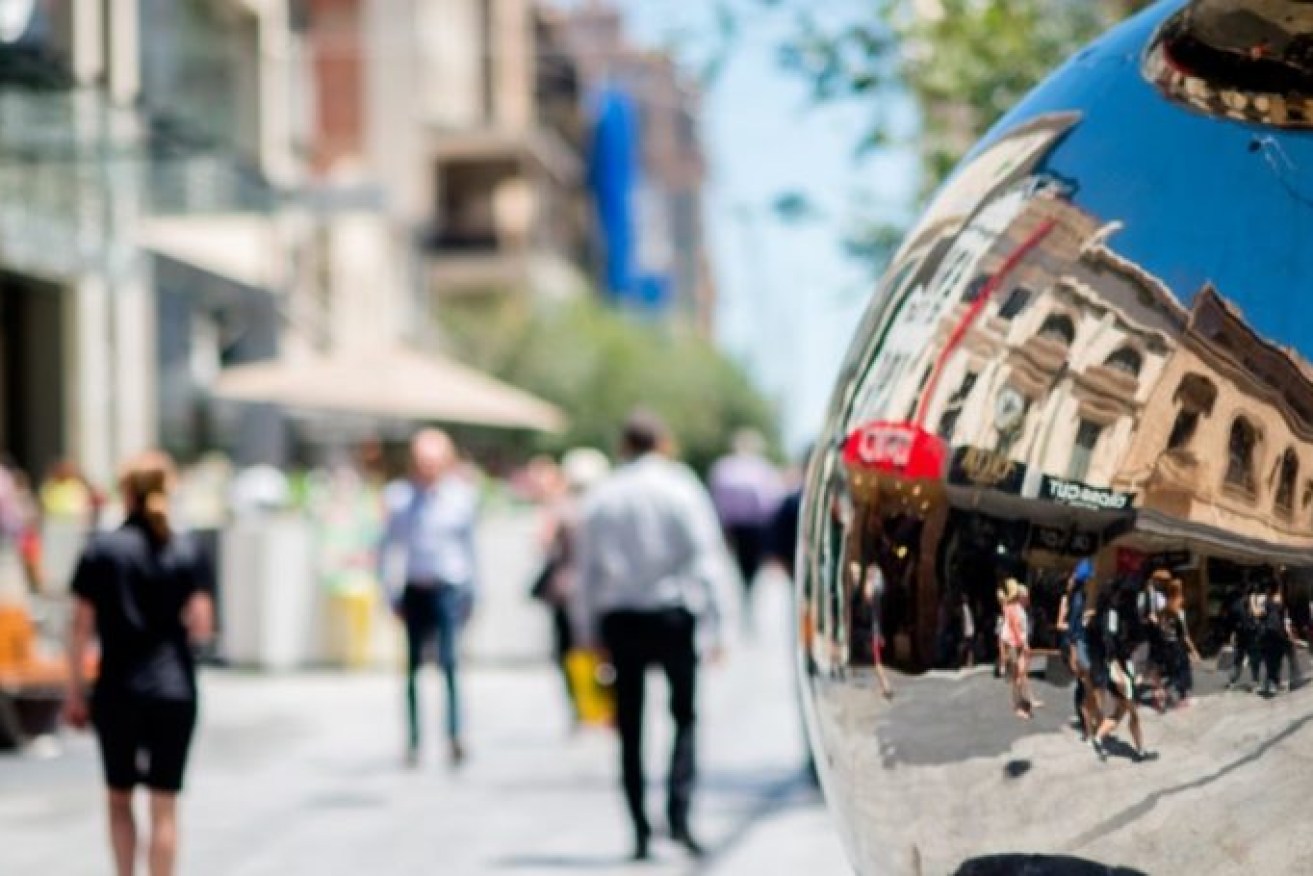SA shoppers spend up to defy Omicron wave
South Australian shoppers spent up big in January despite an Omicron outbreak, with retail sales jumping 3.1 per cent to top $2 billion.


Photo: Nat Rogers/InDaily
The state’s shoppers paid out $2.047 billion for the month, according to seasonally adjusted figures released yesterday by the Australian Bureau of Statistics, a rise of $62 million on December and more than $90 million more than January 2021.
The increase was the second-highest among the states behind Western Australia, which recorded a 4.7 per cent spending spike.
The positive spending result in SA followed a record month of $2.069 billion in November and a pre-Christmas slump to $1.985 billion in December.
It also came at a time when the Adelaide CBD was quiet due to lingering work from home directives that were lifted yesterday by the state government.
Nationally, Australian retail turnover rose 1.8 per cent in January following a fall of 4.4 per cent in December on the back of consecutive rises of 7.3 per cent in November and 4.9 per cent in October.
ABS Quarterly Economy Wide Statistics director Ben James said the 1.8 per cent January rise continues to add strength to the post-Delta lockdown retail recovery with sales at the second-highest level in the series.
“The emergence of the Omicron variant and rising COVID-19 case numbers, combined with an absence of mandated lockdowns has resulted in a range of different consumer behaviours,” he said.
“We have seen the type of spending previously associated with lockdowns occurring simultaneously with those associated with the easing of lockdown conditions.
“This had led to variations across the industries with food retailing recording a rise in sales consistent with previous COVID-19 outbreaks as consumers exercise caution amidst surging case numbers.
“However, the absence of lockdowns meant that other discretionary industries which would usually see a fall during the pandemic have recorded mixed results.”
Food retailing had the largest rise in national sales in January, up 2.2 per cent which is the largest monthly rise since July.
This was offset by a 0.8 per cent fall in cafes, restaurants, and takeaway food services as some consumers opted to stay home.
Density restrictions in hospitality venues in South Australia were eased on the weekend ahead of yesterday’s announcement by Treasurer Rob Lucas that all public sector employees should return to the office.
“While we don’t expect this decision will result in 100 per cent of eligible employees returning to the office, given the sector’s support for flexible working arrangements, we do expect there will be a significant uplift in numbers returning to the city, safely,” Lucas said.
“This will be welcome news for many CBD businesses, particularly cafes, restaurants, pubs and other retailers, who rely on foot traffic and support from office workers.”
Property Council SA executive director Daniel Gannon welcomed the announcement and said private sector businesses should follow suit.
“This is a great decision and one that will be welcomed with open arms by CBD landlords, retailers, and small business owners,” he said.
“It’s important to remember that it is safe to leave your house, it is safe to have dinner in the city, it is safe to return to the workplace – and there is now no longer any density impediment stopping you.”
According to BankSA’s latest State Monitor survey released on Friday, South Australia’s Omicron wave of COVID-19 cases in December and January hit small businesses and CBD enterprises hardest.
The BankSA State Monitor survey found that the initial surge had an impact on both business and consumer sentiment, but confidence remained solid.
“While confidence has dipped, it still remains firmly in positive territory and at a good level, which bodes well for a swift recovery as restrictions continue to subside and activity increases,” the bank’s general manager of business David Firth said.
The survey found the biggest impact from the increase in coronavirus cases was on small businesses as consumers worked from home and chose to stay in more than usual.
The impact was particularly noticeable in Adelaide’s central business district.




